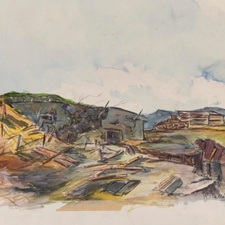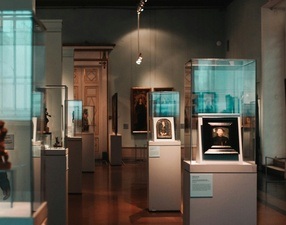I said, ’Auf Wiedersehen‘. Kindertransport nach Großbritannien 1938-39
In the organizer's words:
"Always be grateful to the government of the country you come to because it gives you refuge. Be grateful to those who open their homes to you themselves."
Ferdinand Brann from Berlin addressed these words to his daughter Ursula. She was one of around 10,000 mainly Jewish children who were rescued from Nazi Germany between December 1938 and the outbreak of the Second World War in September 1939 on the so-called Kindertransports and brought to Great Britain. On the first page of a prayer book from the Oranienburger Straße synagogue in Berlin, Ferdinand Brann wrote down ten guiding principles for his daughter to live by. These secular "Ten Commandments" reveal the values he wanted to pass on to her. Reading this dedication, it becomes clear that he was aware that he would never see his daughter again. He was deported and murdered in Auschwitz - as one of around 6 million Jews who were systematically killed by the Germans and their collaborators.
The exhibition shows selected letters and postcards from five different families. They convey an impression of the heartbreaking separation between parents and children, the efforts of numerous host families to provide comfort and the voices of children caught between two worlds. For the parents who remained in the Nazi state, the hope of a reunion was mixed with concerns about alienation.
An exhibition by the Berthold Leibinger Stiftung in cooperation with the Freundeskreis Yad Vashem e.V., the International Holocaust Memorial Yad Vashem, the Vienna Holocaust Library and the Association of Jewish Refugees. The exhibition was curated by Ruth Ur and expanded by the Württemberg State Library to include a station with examples from the region.
The events are open to the public and admission is free.
Exhibition flyer (PDF)
Opening hours:
Mon-Fri 8-22 h
Sat 10 a.m. - 8 p.m.
Sun/Public holidays closed















